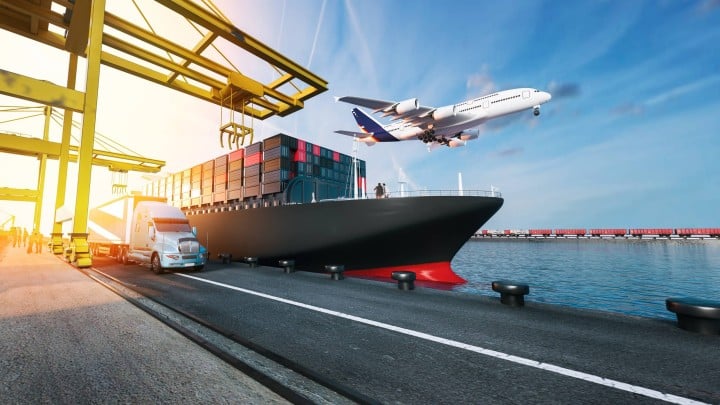
In an era where the concept of a global village has become a reality, the shipping industry is the tireless courier that stitches nations and economies together. It is the means by which raw materials reach factories, finished products find their way to markets, and exotic goods traverse the world to grace our homes. In a single voyage, a colossal container ship may carry everything from electronics and textiles to agricultural produce and machinery. It is this remarkable diversity and scale that underscore the indispensability of the shipping industry as the veritable lifeblood of international trade. In every shipment lies a complex web of logistics, meticulous planning, and technological innovation, all aimed at ensuring that goods move swiftly and efficiently from point A to point B, with minimal disruptions.
Yet, the stakes for the shipping industry have never been higher. In an era where climate change looms large, the environmental impact of maritime transport has come under scrutiny. The need for more sustainable practices and technologies is pressing. Additionally, the volatile nature of global events, such as the COVID-19 pandemic, has highlighted the importance of resilience in supply chains. These challenges, alongside the industry’s ever-growing demands, have propelled the quest for transport efficiency to new heights. Now more than ever, the shipping industry must not only navigate the seas but also the intricate waters of efficiency, sustainability, and adaptability. In this article, we will embark on a journey to explore the dynamic landscape of transport efficiency within the shipping industry, charting the course for a future where commerce flows seamlessly, sustainably, and resiliently across the globe.
The Importance of Transport Efficiency
Transport efficiency within the shipping industry encompasses various aspects, including logistics planning, route optimization, fuel consumption reduction, and timely deliveries. Efficient transportation systems not only benefit companies by reducing operational costs but also contribute to reduced carbon emissions and improved customer satisfaction. Here’s why it’s crucial:
- Cost Savings: Maximizing transport efficiency reduces fuel consumption, labor costs, and equipment wear and tear. It enables companies to allocate resources more effectively and remain competitive in an industry known for tight margins.
- Environmental Impact: The shipping industry is a significant contributor to global carbon emissions. By optimizing routes, improving load planning, and implementing eco-friendly practices, transport efficiency can significantly reduce the industry’s carbon footprint.
- Timely Deliveries: Timely deliveries are vital for customer satisfaction and maintaining supply chain integrity. Efficient transportation systems minimize delays, ensuring products reach their destinations on schedule.
- Resource Allocation: Efficient transport allows for better resource allocation, including labor, vehicles, and infrastructure. This optimization leads to reduced congestion on roads and ports.
- Competitive Advantage: Companies that invest in transport efficiency gain a competitive advantage. Efficient operations enable them to offer better prices and services to customers, which can lead to increased market share and growth.
Innovative Technologies Driving Efficiency
The shipping industry has embraced various innovative technologies to enhance transport efficiency. These technologies range from advanced tracking and monitoring systems to data analytics and automation. Here are some notable examples:
- IoT (Internet of Things): IoT devices, such as sensors and GPS trackers, provide real-time data on the location, condition, and performance of cargo and vessels. This information allows for better route optimization, monitoring cargo conditions, and preventive maintenance of ships.
- Artificial Intelligence (AI) and Machine Learning: AI-powered algorithms analyze vast amounts of data to optimize routes, predict maintenance needs, and improve fuel efficiency. Machine learning models can adapt and refine their predictions over time, leading to continuous improvements in transport efficiency.
- Autonomous Vehicles: Autonomous ships and drones are being developed to reduce labor costs and improve safety. These vehicles can operate 24/7 without the need for crew rest, enhancing the efficiency of cargo transport.
- Blockchain Technology: Blockchain enhances transparency and security in the shipping industry by creating an immutable ledger of transactions. This technology can streamline documentation processes, reduce fraud, and enhance the traceability of goods.
- Green Technologies: Eco-friendly initiatives, such as the use of alternative fuels, hybrid power systems, and wind-assisted propulsion, are being explored to reduce the environmental impact of shipping operations.
Role of the Dispatch Load Board
One essential tool that plays a pivotal role in optimizing transport efficiency within the shipping industry is the dispatch load board. A dispatch load board is an online platform that connects shippers with carriers, enabling efficient matching of cargo with available transportation capacity. Here’s how it contributes to transport efficiency:
- Load Optimization: Dispatch load boards provide real-time visibility into available cargo and transportation capacity. Carriers can efficiently find suitable loads, minimizing empty backhauls and maximizing revenue. Shippers can quickly identify carriers to transport their goods, reducing waiting times and delays.
- Route Optimization: Dispatch load boards often include route planning and optimization features. Carriers can plan their routes more efficiently, considering factors like traffic, weather, and fuel costs. This leads to reduced transit times and fuel consumption.
- Transparency: Load boards enhance transparency in the shipping process. Using dms development services, shippers can access information about carriers’ credentials, performance history, and reviews, ensuring they choose reliable partners.
Carriers can assess shippers’ payment records and creditworthiness, reducing the risk of payment disputes. - Cost Reduction: By streamlining the process of finding and booking shipments, a dispatch load board reduces administrative overhead for both shippers and carriers. This cost-saving benefit contributes to overall transport efficiency.
- Environmental Impact: More efficient load matching and route planning facilitated by dispatch load boards lead to reduced fuel consumption and emissions. This aligns with the industry’s growing focus on sustainability.
In a world where the global economy relies on the efficient movement of goods, transport efficiency within the shipping industry is paramount. Not only does it contribute to cost savings and competitive advantage, but it also plays a crucial role in reducing the environmental impact of the industry. Innovative technologies such as IoT, AI, and autonomous vehicles are transforming the landscape, while platforms like the dispatch load board are streamlining the process of matching cargo with available capacity.
As the shipping industry continues to evolve, transport efficiency will remain at the forefront of its priorities. Embracing sustainable practices, harnessing the power of data-driven insights, and utilizing tools like the dispatch load board will be key to achieving the industry’s goals of cost-effective, environmentally responsible, and timely cargo transport. In doing so, the shipping industry can navigate the waters of the future with greater efficiency and resilience.
We hope you found this blog post on Revolutionizing Transport in the Shipping Industry, useful. Be sure to check out our post on Start a Career in The Shipping Industry for more great tips!
Have Experience in the Moving Industry? Want an Additional Income Stream? Work With All Around Moving!
Join the Work With Us program. All Around Moving Services provides you, the moving consultant, with the carriers, or you can use your own carrier, and have your own company up and running.
Click here to learn more and how a nominal one-time start-up fee of $275.00, gives you the “key” to have your business.





